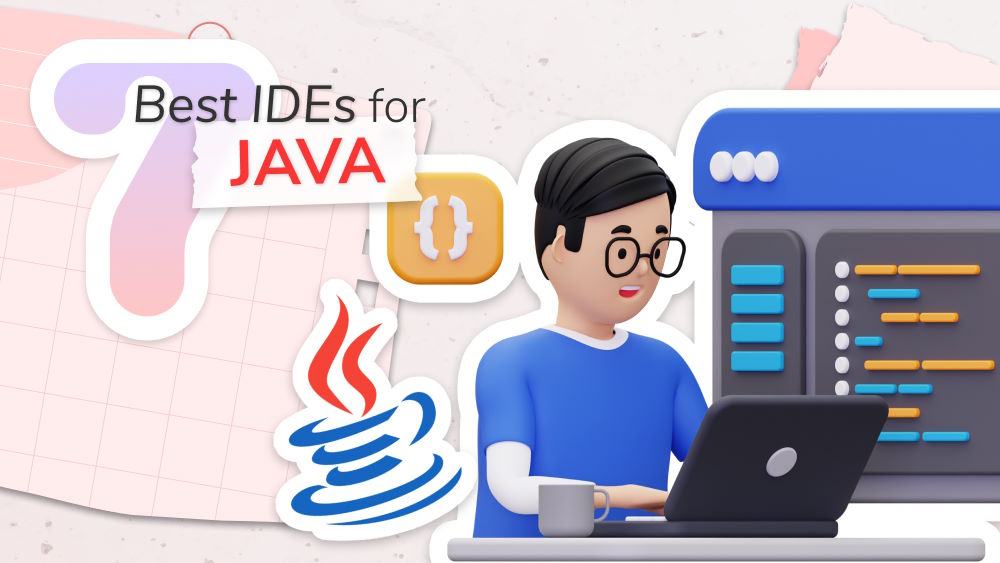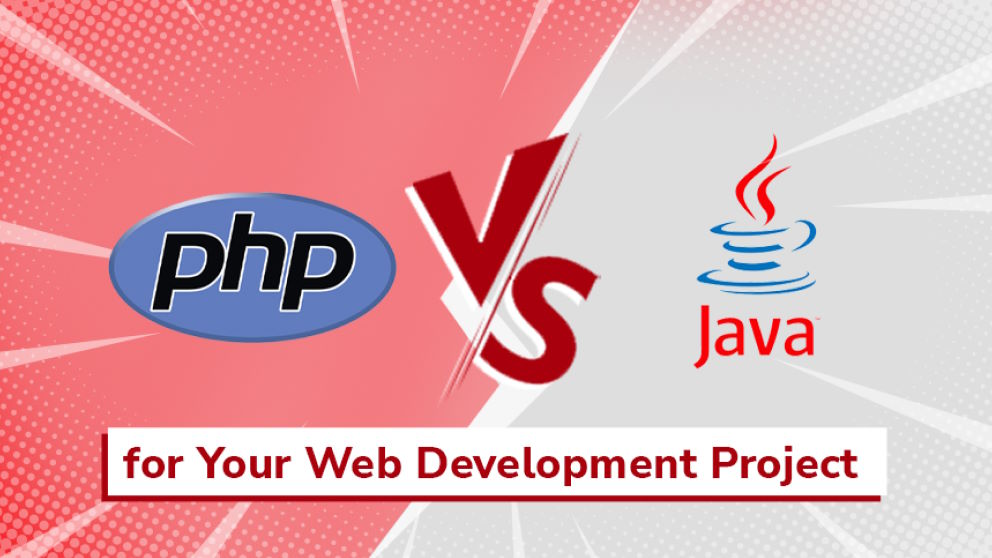Java IDE: Seven Best Java Editors for Java Development

Content Map
More chaptersJava editors, also known as Java IDEs (Java Integrated Development Environments), help streamline the Java programming process in many ways. They enable a Java developer to perform multiple tasks, such as writing, editing, and testing code, in one application – without the need to switch between separate applications. As a result, they can help shorten set-up times, accelerate development, detect (and fix) errors early, and standardize development practices across an entire team.
Choosing the right Java IDE for your project can be hard – especially if you don’t know why they are useful and what makes each one unique. Also, if you are outsourcing Java development, then you will want to know what Java IDE your team uses. The right editor will enable your team to build, test, deploy, and maintain your Java programming languages in the fastest and most efficient way.
What Is Java?
Java is a computer programming language developed at Sun Microsystems, Inc. by computer scientist James Gosling. It was released in 1995 and was pivotal in introducing multimedia and interactivity to the newly emerging World Wide Web. By the late 1990s, Java was being used to power dynamic web applications for the internet, along with applications for consumer devices, such as mobile phones, and applications for commercial solutions, such as retail and financial computer systems.
Used for object-oriented programming, Java closely follows the rules and syntax of C and C++, but it stands out from other languages due to the Java compiler, which turns code into a proprietary format called Bytecode. A JRE (Java Runtime Environment) then interprets the Bytecode and translates it into a format the host computer can understand. This is where the core philosophy of Java (“Write once, run anywhere”) comes from, as it means that developers need only write a Java application once for a computer to run it.
Benefits of a Java IDE
There are many benefits to using a Java IDE in software development. When the right Java IDE is chosen and used properly, they unlock a world of possibilities. They have the potential to help speed up development, assist in early error detection and correction, standardize development practices, and go beyond the capabilities of a standalone text editor with bonus features.
Centralized Environment
Most developers use Java IDEs to consolidate all their tools into one environment. This allows them to juggle multiple tasks at once, in the same familiar environment, without switching between separate individual applications. The three most common tools that Java IDEs centralize include a source code editor, debuggers, and compilers. Having access to all developer tools on one platform can be a huge time-saver.
Improved Error Detection
When a developer makes a mistake in a Java IDE, the visual debugger will let them know: where the mistake is, why it is a problem, and how to resolve it. As a result, the developer will know what code segments need revising, and – since the Java IDE is centralized, easy to share with other developers, and easy to collaborate in real-time – then the whole team will be up to date on the current status of the latest build.
Integrations and Plugins
Being able to integrate and stack existing plugins into a Java program is much faster than building new features from scratch. The good news? All Java IDEs support third-party integrations, so developers can integrate third-party plugins and libraries when writing Java programs, reducing manual coding time.
These plugins and integrations help extend the functionality of Java IDEs, making it easier and faster to do things that would otherwise take too long or not be possible to do in a basic text editor.
7 Popular Java IDEs for Java Development {#7-popular-of-java-ides}

Below is a list of the seven best Java IDEs that are on the market today. As of this writing, these Java IDEs are currently active and readily available, regularly updated, and have a strong developer community and support system. Read more about each Java editor to learn about their unique features and capabilities.
IntelliJ IDEA
IntelliJ IDEA is a Java and Kotlin editor developed and released by JetBrains. It has been around for more than 20 years, making it one of the longest-running Java IDEs around. There are two versions of IntelliJ IDEA to choose from: The free Community Edition and the paid Ultimate Edition. Both versions include a smart editor, run and debug, built-in tools, and a plugin marketplace. But only the paid Ultimate edition offers additional tools for frameworks, web development, remote development, and collaboration.
The smart Java code editor has a deep understanding of the Java programming language, which it uses to provide relevant suggestions to different coding situations, periodically search for possible errors, provide improvement suggestions, and educate developers on best coding practices.
Apache NetBeans
Apache NetBeans is a free Java IDE that provides many features to help streamline the development process. Some of these features include Java code formatting, which lets developers change the layout of their source code to best suit their needs; code folding, which lets developers quickly collapse and expand blocks of code; and; customizing keyboard shortcuts, which lets developers personalize their keyboard shortcuts and save their preferences in a dedicated user profile.
Apache NetBeans also has smart code completion, which helps fill in missing code by automatically recommending possible code fragments.
My Eclipse IDE
Another open-source Java IDE and one of the best IDEs used for Java EE, MyEclipse, is available for Windows, Linux, and Mac. The MyEclipse IDE is compatible with the Eclipse Marketplace, which means developers can search and download plugins from the Eclipse Marketplace and integrate them into the MyEclipse IDE.
MyEclipse also features a dedicated plugin development environment, which allows developers to build new plugins from scratch and test them before integration. Another great feature of MyEclipse is the database and persistence support, with connectors for dozens of popular databases such as Spring, Maven, jQuery, and much more.
Codenvy
Codenvy is a cloud-based Java IDE. It is a Java virtual machine workspace where developers can work and collaborate without installing local software on their machines. This makes it ideal for remote software development teams that need a unified platform that their global workforce can use to work individually and collaborate.
The cloud-based nature of the platform also makes it easy to preview test builds to remote clients, which is achieved by publishing to a central repository such as Git, Amazon, or Google App Engine.
JDeveloper IDE
JDeveloper is a visual Java IDE with features to support the full SDLC pipeline from beginning to end. It has integrated features for coding, modeling, debugging tools, testing, profiling, and deploying Java programs. JDeveloper is available in 2 versions, Oracle JDeveloper Studio, the complete version with all features, and Oracle JDeveloper Java, which contains only the core Java and XML.
JDeveloper features a convenient drag-and-drop functionality, which makes it quick and easy to build dynamic web applications and mobile applications. The platform also has strong developer and community support, with a wide range of written documentation, tutorials, online demonstrations, video tutorials, and more.
DrJava
DrJava is a lightweight, simple Java IDE with a strong emphasis on education and testing. Despite being primarily for Java students, it also has powerful features for advanced users to assist with real-world applications. These include the JUnit test facility, a powerful framework for launching testing frameworks on the JVM, and the ability to generate JavaDoc documentation, which is ideal for generating API documents from source code comments.
jGRASP
jGASP is a lightweight Java IDE that specializes in the automatic creation of software visualizations. It is designed specifically to produce CSDs (Control Structure Diagrams), a type of technical diagram used to describe the flow of control in applications, which aids in the debugging and workbench testing phase by making it easier for developers to read source code.
jGRASP can also be configured to work with most compilers, making it easy to integrate into existing Java application projects.
Choosing the Right Java IDEs for Java Programs
Hopefully, you’ve found this post helpful and will choose the right Java IDEs for your project. Or, if you’re a client looking at outsourcing Java development, then you can use your deeper understanding of other Java IDEs to choose the right team for your project. In addition, you’ll be able to ask different teams what Java IDEs they use, how they complement that specific team’s workflow, and how they can deliver the best outcomes for you.
Even if knowledge of Java development best practices isn’t essential to building and releasing a Java application, having this knowledge will help you “speak the language” of the Java developers a bit more easily and communicate with them on a level that you can both understand. And most importantly, you’ll find the working relationship more friendly and easygoing, resulting in a much smoother development process.
If you are searching for an outsourcing partner who can put together and manage a solid team of Java developers, Orient Software is here for you. We pride our dedicated team and IT staff augmentation services, and we can deliver the best solutions catered specifically to your needs and spending limits. Just tell us what you need, and we’ll take care of the rest.







